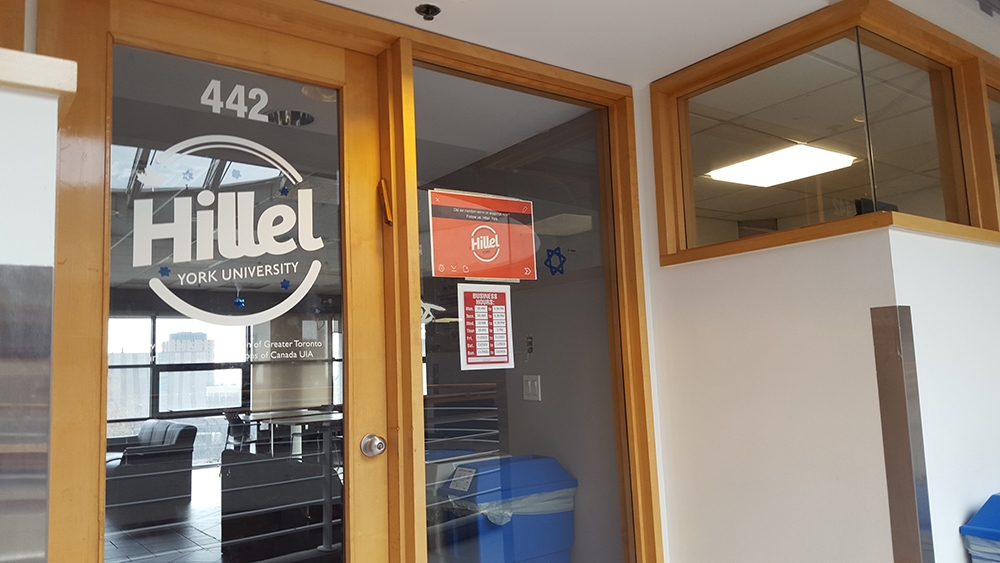Hassam Munir | Executive Editor (Online)
Featured image: The Algemeiner hopes administration will address discrimination. | Dina Hassan
A ranking by the United States-based Jewish newspaper The Algemeiner has named York the 17th-worst campus for Jewish students in North America, out of a total of 40 ranked post-secondary institutions.
The Algemeiner cited students’ comments on York’s alleged “anti-Semitism problem,” as well as recent incidents such as the controversy over the “Palestinian Roots” mural in the Student Centre, as the reason for York’s place in the ranking—a position that some in the York community believe reflects their experiences.
Eli Razimor, president of the Israeli Students Association at York agrees with the 17th-place ranking.
Razimor cites the unauthorized distribution of Your Ward News on campus in November of 2016 as one example. The issue of Your Ward News that was found on York’s newsstands was filled with anti-Semitic content and York administration quickly arranged its removal.
However, some members of the Jewish community believe that York has been underrated in the ranking.
“As the representative of a Canadian organization, I can’t comment on how York matches up against the mostly American schools on The Algemeiner’s list,” admits Aidan Fishman, campus advocacy coordinator for B’nai Brith Canada.
“However, based on the number and severity of […] incidents at York over the past few years, York could and perhaps should have received an even worse ranking than other Canadian universities such as U of T and McMaster [University].”
U of T and McMaster were ranked third and 13th, respectively, and along with fourth-place McGill University were the only Canadian universities to rank higher than York. The Algemeiner admitted the limitations of this kind of ranking.
“While cognizant of the inherent shortcomings and imperfections of the practice of list-making in general, we have taken great care to produce a thorough and credible ranking system that is driven by a comprehensive analysis of many data points representing the full scope of campus life,” said the editors of The Algemeiner in the publication.
The criteria that determined the ranking included, among other factors, the number of incidents on each campus deemed to be anti-Semitic, the number of anti-Israel groups and their level of activity and the public positions taken by faculty members regarding the Boycott, Divestment and Sanctions movement.
The emphasis on isolated anti-Semitic incidents as a criterion, among other aspects of the ranking, has been questioned by certain Jewish organizations.
A representative of Hillel Ontario, which is active on nine university campuses in the province, including York, said in a statement issued to Canadian Jewish News that a campus “cannot be judged on how good or bad it is for Jews based on whether anti-Semitic and anti-Israel incidents occur.” He asserted that the ranking is misleading and does not accurately represent the experience of the majority of Jewish students on campus.
In their publication, The Algemeiner said that they hope that university administrators will respond to the ranking by considering steps that can be taken to improve the conditions of Jewish students on campuses.
“I think it is important for the administration and for the student body to recognize that there is anti-Semitism and raise awareness against such discrimination so students and faculty are aware and can openly condemn these incidents.
This will allow students in the Jewish community to feel comfortable on campus and openly and proudly express their Jewish identity,” says Razimor.
York was not available for comment at the time of publication.




